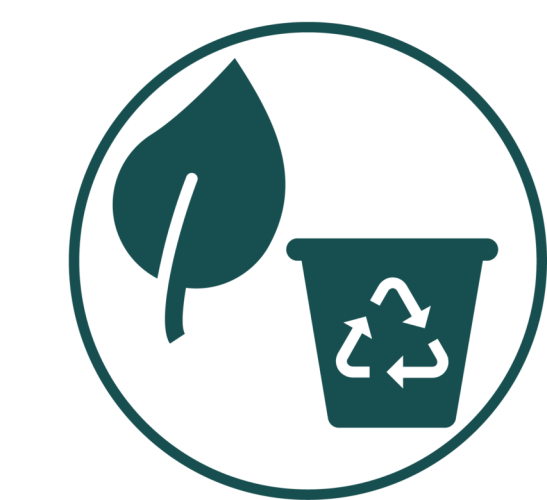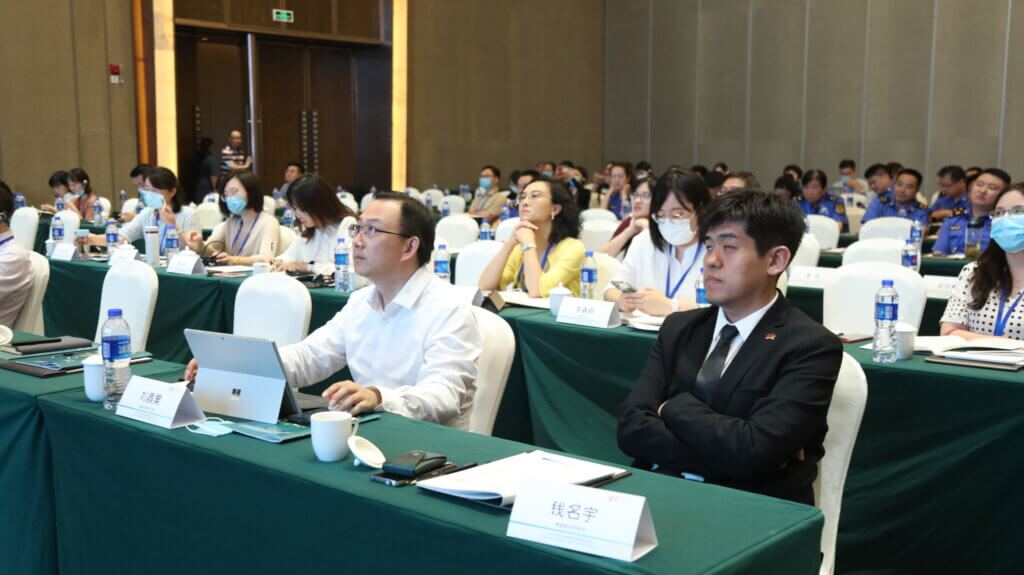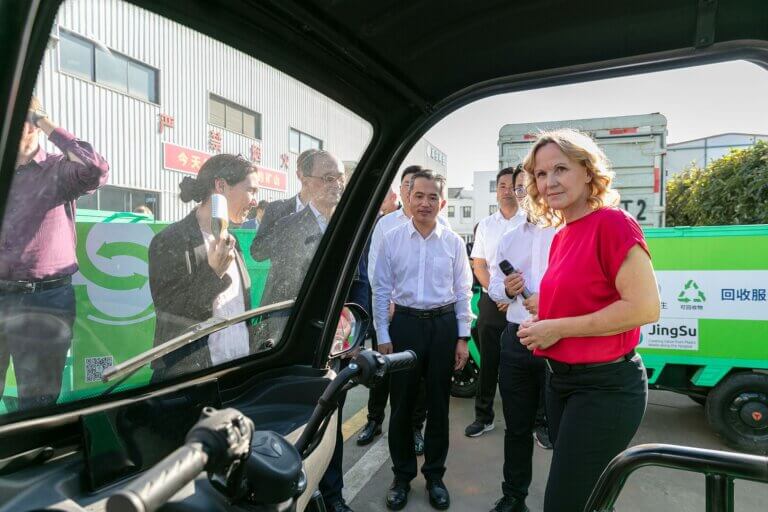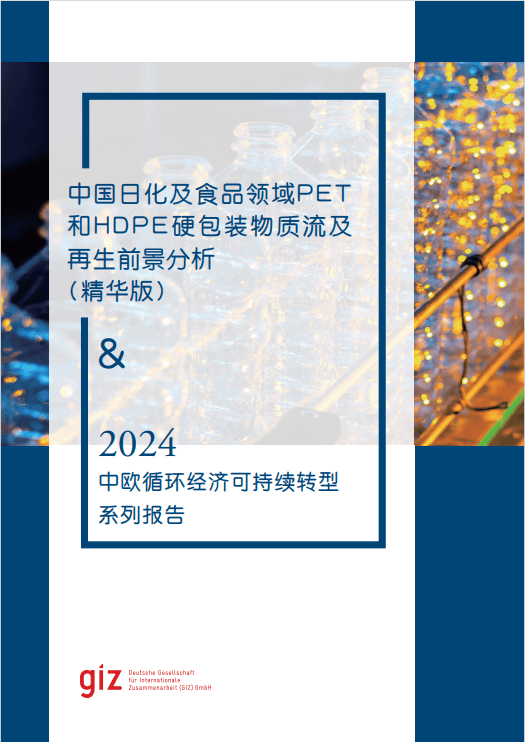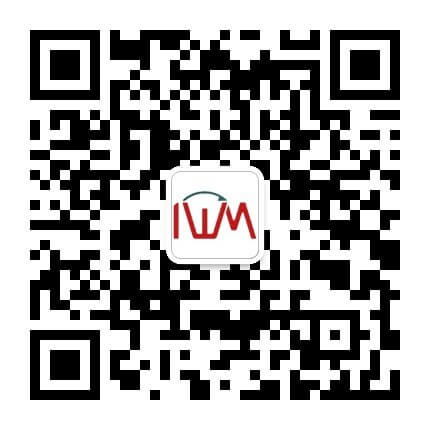From September 7 to 8, 2020, organized by the Deutsche Gesellschaft für Internationale Zusammenarbeit (GIZ) and the China Association of Urban Environmental Sanitation (CAUES), and co-organized by the Bengbu Housing and Urban-Rural Development Bureau and the European Union Chamber of Commerce in China (EUCCC), “IWM NAMA Low-carbon Integrated Waste Management Symposium” was held in Bengbu, Anhui Province. This Symposium invited domestic experts to attend in person and international scholars join online, sharing and showcasing the Best Practices as well as exchanging the latest trends in the waste sector.
Mr. Wang Qingwu, Deputy Mayor of Bengbu City, and Mr. Tong Lin, Director of the Environmental Sanitation Engineering Technology Center of the Ministry of Housing and Urban-Rural Development attended the meeting and delivered speeches. They congratulated the holding of the meeting and expressed their recognition and further expectations for the implementation of the IWM NAMA project. Mr. Sebastien Paquot, Counselor of the EU Delegation to China, Ms. Miriam Gutzke, Second Secretary of the Embassy of Federal Republic of German, and Mr. Markus Delfs, Head of Cluster Sustainable Transition Cluster of GIZ participated remotely and gave a speech. He reviewed the joint efforts between China and Europe as well we between China and Germany in waste and low-carbon management, and said that he will continue to work together to support integrated waste management and promote sustainable development of a green economy. Mr. Sebastien Paquot and Ms. Miriam Gutzke also shared the new policies and new strategies of the European Union and Germany in further promoting circular economy and achieving green recovery in the subsequent keynote report.
Mr. Liu Jinghao, Vice President and Secretary-General of China Association of Urban Environmental Sanitation, summarized the current status and development trend of China’s municipal solid waste management in the context of waste classification in the keynote report; Wang Jiaqu, Secretary of the Bureau of Housing and Urban-Rural Development of Bengbu City, shared Bengbu’s Practice in low-carbon integrated waste management; Mr. Chang Xinjie, Chairman of the Environmental Working Group of EUCCC, and Mr. Qian Mingyu, Team Leader of GIZ Waste Management and Circular Economy Team, introduced the practice and efforts of the EU and GIZ in the field of circular economy.
From the afternoon of September 7th to the morning of September 8, the main forum of the conference discussed in depth the direction of waste management in the context of its challenges and possible solutions in the process of refined management and high-quality development, transformation and upgrading.
After the main forum, three sub-forums were held on the afternoon of September 8, i.e. ” Financial Instrument in MSW Management (online)”, “Discussion on Development of the Resource Recovery and Recycling Industry with a Focus on Extended Producer Responsibility” and “Rural Green Development and Waste Management”. The three sub-forums discussed the feasible way of low-carbon comprehensive management of domestic waste from the dimensions of business model, resource regeneration, and rural development.
The ” IWM NAMA Low-carbon Integrated Waste Management Symposium” attracted more than 160 participants. In addition, this seminar also opened an online participation channel to allow the whole symposium to be broadcast live on the web. A total of more than 1,000 online clicks were generated. A new way of “Online + offline”, “remote + on-site” prologue an innovative tool to explore waste management and circular economy!

